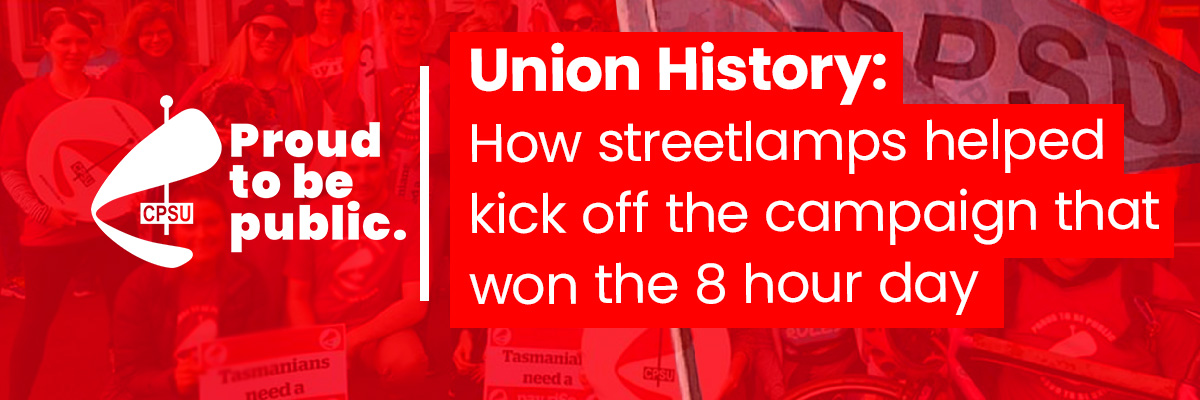
It’s union members who ensure workers have better rights, voice, and pay year-by-year. It’s union members who ensure working conditions don’t go backwards.
You probably know we have union members to thank for the weekend – but how much do you REALLY know about Eight Hours Day?
‘Eight hours labour, eight hours recreation, eight hours rest.’
You’ve probably noticed how new technologies are used to force workers to give up ever more flexibility, availability, personal data and privacy up to the boss – mobile phones, social media. But what about… street lights?
Street lighting in 1841 meant shop employees and tradespeople had to work longer hours – until many Australians found themselves working 14 hour days.
On 21 April 1856, stonemasons in Melbourne put down their tools and stormed off the job in protest after bosses refused to hear their demands for reduced working hours.
By standing united, in union, workers across Australia won the right to a reduction of hours, and no reduction in pay.
Being union was no small thing, and could even risk your life. In 1822 the convict shepherd James Straighter was sentenced to 500 lashes, one month’s solitary confinement and five years penal servitude for ‘inciting his Master’s servants to combine for the purposes of obliging him to raise the wages and increase the rations’.
The 1854 ‘Master and Servants Act’ legally required workers to perform their duties, ‘in a diligent, respectful and careful manner, with no misconduct, insolence or other poor behaviour’ – or face 3 months imprisonment with hard labour. With employers only required to pay their workers once every four months, it was easy to bully them into compliance by holding poverty over their heads.
Transportation made for an easy source of forced labour to break strikes by workers – but also brought countless political prisoners exiled from England, Wales, Scotland and Ireland for protesting similar conditions – such as the Tolpuddle Martyrs and those imprisoned after the 1839 Newport Rebellion, who continued to fight for civil rights and justice in lutruwita/Tasmania.
Eight Hours Day is an important reminder that nothing was ever handed to working people on a silver platter – you have to stand up and fight for your rights and for a better life.








